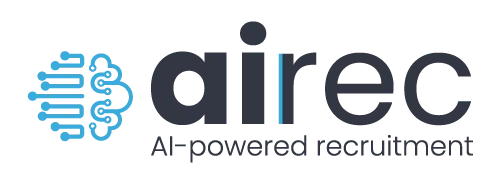Ever since the dawn of humanity, our progress has been linked to the scope of revolutions. From the cognitive abilities that our ancestors developed to the recent revolutions in information and communication technologies, we grow with change. However, in discussions of this sort, we often overlook a significant aspect of these societal and global changes: their impact on the workplace.
One would assume that in a world run by money and with companies focused on maximizing efficiency, we would pay more attention to our most invaluable asset: our employees. This is where departments like Human Resource Management come into play.
Without a system holding employers and employees together, a company would easily fall apart.
This is especially true in the wake of the two enormous challenges faced by a modern workplace, i.e., The Knowledge revolution and The Social Revolution.
What Is the Knowledge Revolution?
Back in the late 90s, Graciela Chichilnisky defined it as “…a revolution, driven by knowledge and by the technologies for processing and communicating it.” Years later, this is truer than ever.
Without a doubt, humanity seems to be standing at the pinnacle of automation and technology, with most companies having access to these services. Under these circumstances, whoever possesses the most knowledge and the best ways to distribute it, takes the crown.
The acquiring of knowledge, the advancements in research and data-based strategies, and the analysis of that information to be put to good use, becomes the new equivalent of increased generation of capital. This has proven to be as enormous as the Industrial or Agricultural revolutions, certainly in its professional implications.
How Does the Knowledge Revolution Impact A Workplace?
The collection of knowledge falls upon human shoulders, and this can be tricky.
Studies have shown that 80% of a company’s acquired knowledge comes from knowledge-based employees like scientists, researchers, developers, and engineers.
The company, therefore, must make sure that this stream of input runs as smoothly as it can. It may be possible that these individuals feel demotivated and under-appreciated by the company and may be inclined to withhold their knowledge or even resign and find other, better workplaces. Without providing incentives or goals, employers find it challenging to keep valuable knowledge floating inside their organization. To counter this, most of them have traditionally arranged annual merit-based bonus plans and salary raises.
However, just the procurement of knowledge is not all. A functional workplace requires that this sea of knowledge be distributed and shared with the whole company; to be applied to a wide range of problems and to create the best solutions to those problems. A large pile of data is no good if it is not reaching the hands of concerned workers who can use it.
What Is the Social Revolution?
The Social Revolution refers to the drastic changes in society brought about by technology, specifically with social media.
We have a more sensitive and empathetic way of looking at the world, with the help of a thousand different people telling their stories through many different lenses. This has also led to us being more open to sharing our achievements online, keeping our loved ones updated about our lives and work. Social media has birthed the need to stand out in all of us.
Moreover, we can express ourselves in a better and faster manner. We share everything from our small creative endeavors, such as art, music, poetry, scientific experiments, to big news like getting married or moving to a new city. We share our lives online in our ways, which brings us gratification and a sense of community.
How Does The Social Revolution Impact A Workplace?
It has long been known that the people who work for a company want to feel appreciated and that the hours they are putting in do matter. The shifts mentioned above in human interaction and the online community’s presence have undoubtedly influenced the way they expect that appreciation to come.
Traditionally, employers would gather their workforce once a year and throw around some praises and maybe even an award for employee of the year, and then everyone would go home. Now, however, employees may feel like this creates a vacuum, where the only people who are aware of how well they are performing at work are their co-workers. They want to be able to share these achievements with their loved ones in their personal lives. In simple words, it has to be a more inclusive affair.
On the other hand, companies now have new ways to look for potential employees. With sites like LinkedIn, the recruitment process is in no way the same as it was before.
The employers send out job vacancies and have to have an orderly and effective way of looking through thousands of applications to find a small number of suitable candidates. Even though we still have a jobs classified section in our newspapers, companies know that their future employees are most likely not reading newspapers. After all, don’t they get their news online as well?
The Role of Human Resources in Workplaces
In the wake of these newfound challenges, it is crucial for any company to continually develop constructive solutions to manage all the needs of a modern employee, simultaneously ensuring employer satisfaction with increased output rates and efficiency. When it comes to the knowledge generated by a company, essential steps need to be taken to encourage and provide an incentive for their knowledge workers to be more curious, thoughtful, and consequently, more productive.
One way to encourage workers is through knowledge exchange programs where every employee has a specific “current account” of their contributions to a company.
They can earn points not just for submitting that knowledge but also for every time a colleague uses it. After a certain amount of time or ‘currency points,’ they can exchange them for gift cards, a paid vacation, or even actual money. This kind of arrangement keeps every employee motivated to do their best, knowing that their expertise is compensated for, even when the grass seems greener on the other side.
On the other hand, the company executives have to learn how to keep employee morale up and make their workplace a more open and friendly environment for everyone. This translates into corporate dinners or field trips where colleagues can bond outside of work and the trend of verbal appreciation that is more genuine and less formal.
There are also recreational lounges, snack bars, teatime conversations, and some companies even keep massage chairs and sauna baths for their employees to relax, and keep them from burning out.All of this feeds into the sense of community that a 21st-century person is looking for while also financially benefiting themselves and their workplaces.
Even for smaller companies who’ve got limited resources, outsourcing human resources management firms enables them to create cost-effective solutions to marvellously counter all of these new-age issues.
The company has to be prepared for and trained enough to handle the increased influx of job applications and figure out which applicants are most suitable for their requirements. They have come up with new evaluation devices to push this process forward, for instance, group activities and psych evaluations.
It is useful to note that with the Knowledge and Social revolutions set in motion, adaptation and evolution have been at the heart of human resource management. Being good at that prevents us from getting overwhelmed at workplaces, whether we are bosses or subordinates. We realize the vitality of these services and incorporate them and their ideas into our workplaces; that is the only way a company or organization can successfully cope in the coming times.

